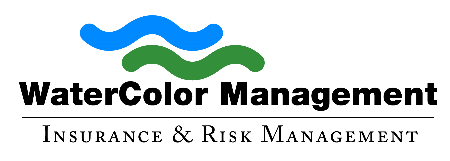
Water is the planet’s most essential resource, and water treatment is one of the most effective ways to protect it. It makes sense that trends in wastewater treatment would reflect values of sustainability, then. Despite this progress, there is much room for improvement when it comes to implementing environmentally friendly practices, and 2022 wastewater industry trends may provide some solutions. Professionals who work in a wastewater treatment facility should pay attention to the following ideas and continue making strides towards a more sustainable industry. With the right practices in place, wastewater treatment can benefit the planet as much as it benefits people.
Treating Emerging Pollutants
Water treatment insurance typically requires that facilities maintain standard sanitation practices, including the treatment of pollutants and pathogens. Some treatment systems are taking this process to the next level, though, and implementing a pretreatment program that addresses pollutants that emerge within potable water sources. This is a promising development for areas that lack a sufficient supply of reusable wastewater. By treating groundwater, instead, this program offers to minimize energy expenditures while improving access to water in areas of scarcity.
Monitoring With Artificial Intelligence
Many technologists say that artificial intelligence is the future — and indeed, it’s spread to the point of ubiquity. It shouldn’t be surprising, then, that this technology has made its way into the wastewater treatment sector, too. AI has become an integral part of many wastewater solutions that rely on sensors and monitoring. With these processes managed automatically by AI, treatment can be optimized and processes can be more efficient. This saves time and money for facilities while also cutting down on the unnecessary use of energy and resources.
Transitioning to Decentralized Treatment
The decades, the centralized water treatment plant has been the industry standard in the U.S. It’s true that this model offers many benefits, but in recent years, the advantages of decentralized treatment have become clear. A modular treatment system offers users the ability to reuse water that is collected onsite. This can minimize the expenses associated with wastewater treatment, and it can improve the sustainability of wastewater, too. This method is particularly desirable in smaller and midsize communities that may see high costs associated with off-site wastewater treatment.
Assessing Risk Management Practices
There are many risks associated with wastewater treatment practices. Anticipating, managing, and avoiding these risks is essential. It’s not just a matter of business, though — it’s also an environmental concern. An incident at a wastewater treatment facility can easily become a major environmental hazard. Although water treatment insurance covers many of the liabilities associated with such an incident, it’s time for facilities to reassess their risk management protocol and invest in proactive prevention of any potential accidents.
About Watercolor Management
Watercolor Management has insured the water industry for over 30 years. Our policies include unlimited defense cost coverage in the event of a lawsuit against you. Call us at (855) 929-0824 or email info@watercolormanagement.com for a quick quote for your Water Business Professional, Products/Completed operations, Pollution and General Liability Insurance.




